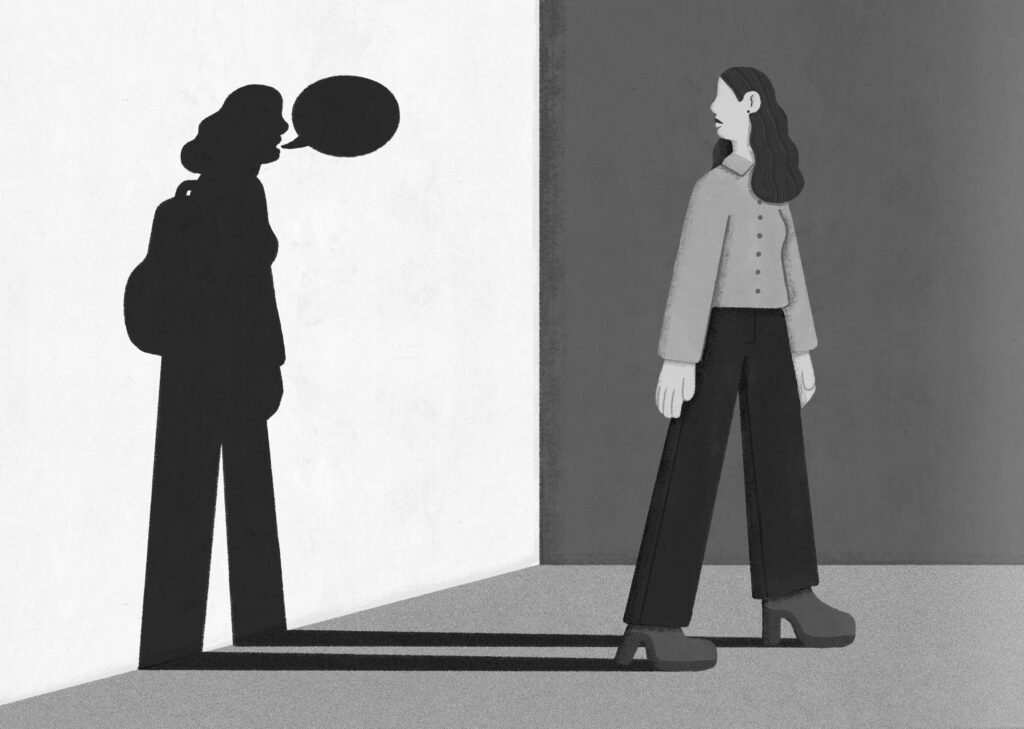As a teenager in the 1990s, Rosalind Fisher had a slippery relationship with the truth. She slung embellishments and fabrications and even pawned off other people’s stories as her own. Now in her forties, she regrets that behaviour. Genevieve Scott’s latest novel, The Damages, is told through the older woman’s perspective. It’s a two-part affair. First, Ros looks back on her dishonest youth. Then, in 2020, she contends with the lingering effects of one of her biggest fibs.
Attending middle school in status-obsessed Los Angeles, insecure Ros can’t take “being on the outside.” She spins elaborate yarns to inflate her social standing, including that her father was the architect of the actor Will Smith’s mansion. Eventually, her doubting friends discover the truth and cut ties. After a bout of mono in high school, Ros becomes “weird and contaminated” and wishes for “an opportunity to reinvent myself.”
She gets that chance when she’s accepted at “elite” Regis University, a small campus three hours outside of Toronto. But there Ros falls into old habits. She doesn’t want to associate with the “leatherettes” in her all-girls dorm and be “another pony-tailed, poli-sci major with an unironic passion for Jewel.” So she courts the in crowd with lies, such as claiming to play the guitar and pretending to like cats. She also hurls cruel jokes at the “uncool” students: “The dorks in our dorm were sitting ducks.”

A woman’s chronic embellishing casts a long shadow.
Paige Stampatori
Her targets include her kind-hearted, studious roommate, Megan Main, from New Brunswick. Megan wears outdated pleated jeans, sleeps with a horse-print duvet, and keeps a framed photo of her “cheesy” high school boyfriend on her desk. “Megan’s things confirmed that she was a loser,” Ros recalls. But in private, Megan’s good nature wins Ros over; she is an “extremely kind person” and a “dream roommate.” Behind closed doors, they become friends.
Four months later, Ros cajoles Megan into a night out despite a severe ice storm. “We need to get you to a bar!” Ros insists. “You just turned nineteen.” Megan gets visibly drunk, and though Ros feels “a twinge of sympathy for her,” she leaves her behind and goes home with a guy. The next morning, the storm hasn’t let up — and Megan is missing. Ros is questioned by her peers, the police, and the school administration. Unsurprisingly, she lies, worried that she may be culpable: “My main concern was self-preservation.” Megan returns after two days, traumatized and tight-lipped about what really happened and acting distant. She abruptly withdraws from Regis, and she and Ros stop speaking.
Scott brings the university campus and its students to life with expressive, poignant prose that captures the insecurity and capriciousness of youth. Ros’s aching desire to fit in practically bleeds through the page. It’s hard to watch as she struggles to find herself, abandoning her principles to seek the approval of others. “I was registering every reaction or lack of reaction people had to me,” she reflects. “Other people were living life, but I was studying it, trying to find out how to be.”
Twenty-two years later, Megan re-enters Ros’s world. Now an executive at a “horseback riding nonprofit,” she levels a sexual assault allegation against Lukas Van Kampen, a Regis classmate and children’s author. The crime occurred, Megan claims, on the night she went missing. Ros and Lukas have since gotten together and broken up. Isolating in cottage country with their eleven-year-old son during the pandemic, Ros must revisit her role in her former friend’s disappearance when Megan’s lawyer asks her to give a statement. This time, she resolves to tell the truth.
As Ros mulls over her culpability and responsibility, she also reckons with the laissez-faire sexual politics of the ’90s. Girls were meant to appear aloof about sex, to laugh it off when a guy made unwanted advances. In the wake of the #MeToo movement, Ros recognizes that this attitude is sinister: “I would never force my body on someone like that.” Her reflections on this delicate issue constitute some of the book’s most affecting scenes. Scott ably depicts the jaded woman realizing that the campaign for women’s empowerment isn’t just an “onslaught of bandwagony bullshit.”
The novel’s emphasis on Ros’s perspective can undermine its pacing, however. In the first part, the plot moves steadily, with plenty of engaging action. In the second part, Ros’s musings slow the proceedings considerably. They include a lot of arm’s-length speculation on her ex’s behaviour that is sometimes puzzling, even paranoid. Scott’s commitment to the first person means readers experience the story’s central incident only through a character removed from the action. While there may be a thematic justification for this forced perspective, it’s narratively unsatisfying. A shift to the point of view of those directly involved might have alleviated the problem.
That said, Scott does depict her protagonist’s feelings with surgical precision. Even though Ros is acerbic, cold, inhibited, and often unlikeable, it’s hard not to sympathize with her. Riddled with regret for her lying ways, she can’t move on from her youth. “I’m still frozen,” she says. “Frozen in a place that doesn’t care that I was there.” Many readers will root for a happy ending, hoping that, if nothing else, Ros can finally be honest — with herself. Indeed, despite its flaws, The Damages offers a gripping narrative buoyed by sharp writing and convincing characters.
Emily Latimer is a freelance journalist based on Cape Breton Island, Nova Scotia.

